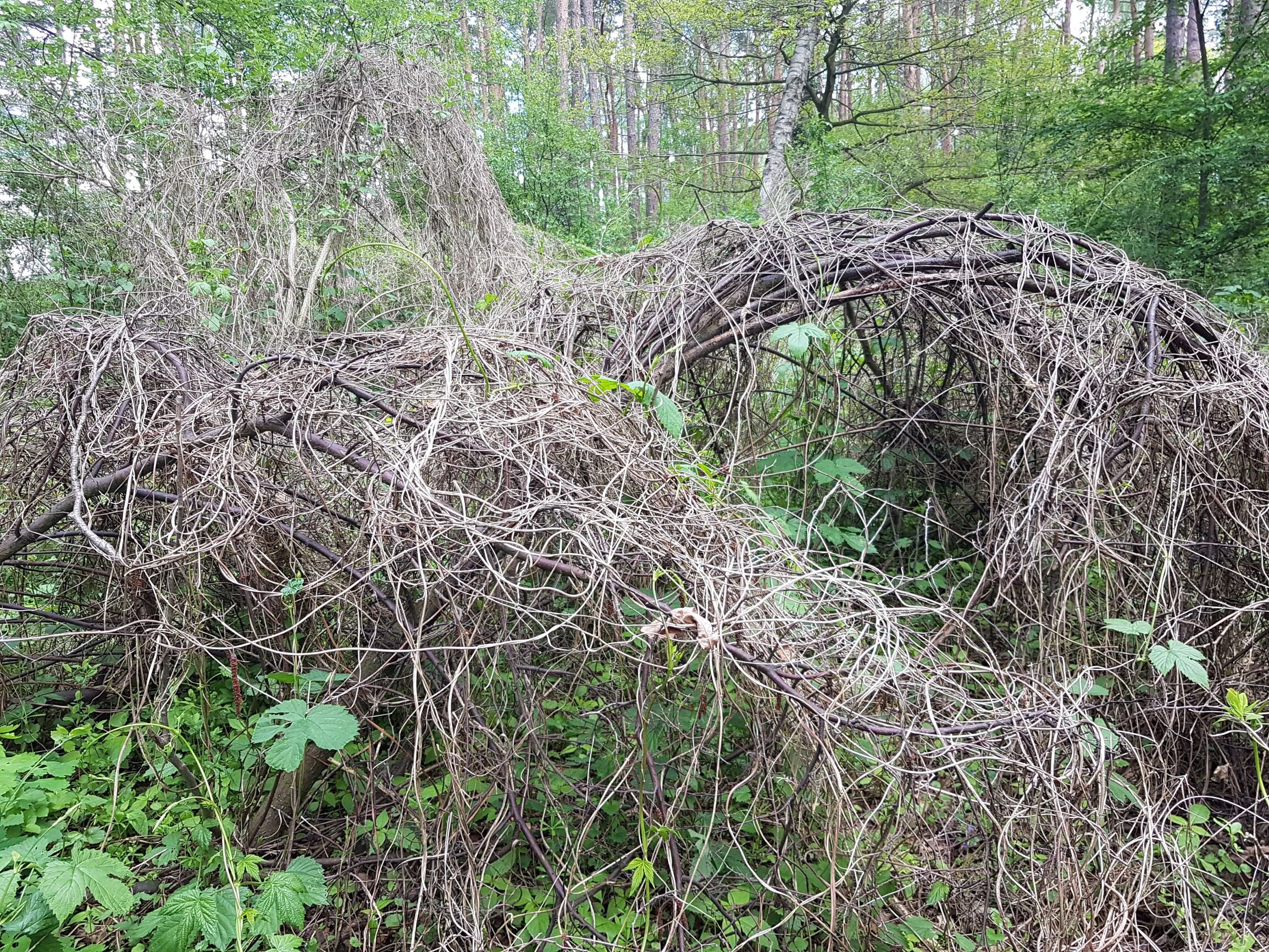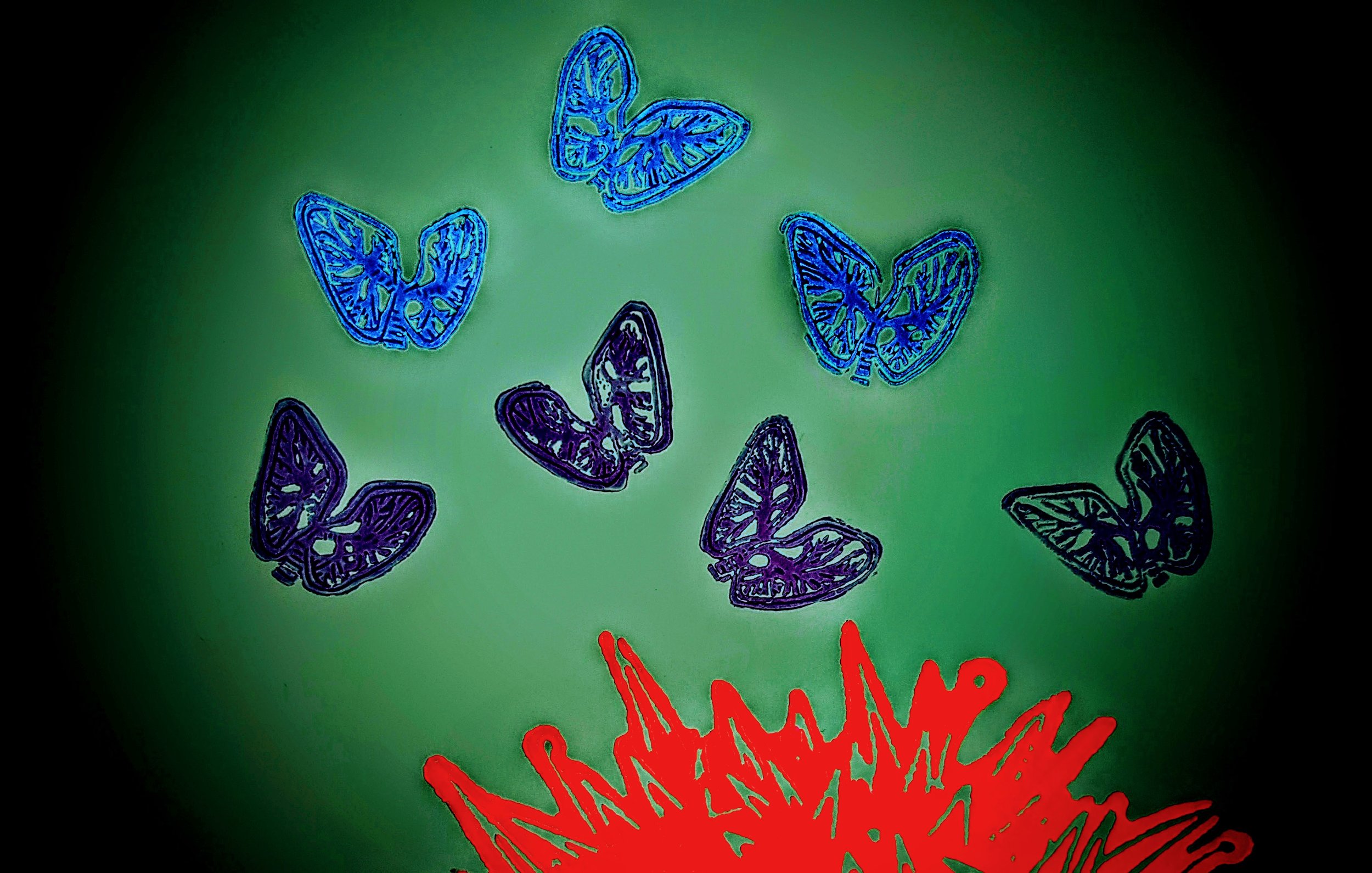Anecdotal Observatory
The Mark

Butterflies
When the season was right, Hanneke studied butterflies, but the season wasn’t right, and she felt lonely. In her dreams, she observed butterflies, drew them. She’d spent the morning testing the spring ice on the forest lakes, thinking she could fill her time with ice skating. But the ice was too thin. Today was Saturday though, and the ice disco up in Herrischried would be open. In the afternoon she drove up through the descending dark to the skate rink. The ice oscillated in pink and purple from the colored projectors. She nodded at village acquaintances, who whispered to each other as she skated by. On skates she was a bumble bee moving gracefully in defiance of what others thought possible of her. She’d been called too big all her life, and it had made her feel small. They called her a freak behind her back, the ogre. She knew that.Until recently, she’d lived with her sickly mother. Now, she lived alone—still in the family’s old water mill in the Black Forest by the white creek that ran down from the mountainous heart of the forest. After her mother was gone, Hanneke continued as before. She felt at ease in the woods—never felt too big or too small there.After some rounds skating through 90s euro-dance, she went to get herself a Rothaus.A slight man was drinking a fragrant winter punch at the bar. Berries and cinnamon. She mumbled hello.‘Hello,’ he smiled.A short pause, then she asked, ‘Are you new here?’‘Just visiting. Hiking through the Black Forest and happened to pass by this place.’ He gestured at the skate rink. ‘It looked magical. Had to come closer and see.’It turned out he was planning to sleep in the forest. Hanneke thought that crazy, the nights still being cold, and invited him to stay at her place. Big and empty as it was. When he picked up his bag to walk to Hanneke’s car, she noticed it wasn’t a backpack but an old leather suitcase.‘It was my father's,’ he said, and she nodded.They agreed he’d stay for a few days. But he lingered: days turned into weeks. She went about as usual, while he seemed to sleep all day and only joined her in the evenings. She had missed sharing the house with the quiet presence of another.They went for walks. Cooked together. He had a large appetite for greens. He loved fennel and parsley so much that she came to love it too.One weekend morning, Hanneke knocked on his door, wanting to suggest they go for a daytime walk together, opened it and froze: he wasn’t there. Instead, a giant caterpillar lay on the bed, green with black and orange markings, seemingly sleeping. A nervous laugh escaped her. Her eyes searched the room for an explanation. On the floor, the leather suitcase lay open with the skin of the man inside, neatly folded. Heart racing, she stepped out backwards through the door and closed it. Agitated, but not afraid, she sat down by the window overlooking the creek and waited. In the evening, he came out and sat down across from her in his man skin again. ‘What are you?’ She looked at him.‘I wanted to tell you, but...’ He looked at his feet. ‘I am about to change. Then I’llleave—summer is around the corner.’Two weeks he stayed in his room, and she didn’t dare to disturb. When he finallycame out, he kissed her. Hanneke had never wanted to kiss any man, but there was an intensity to his touch that made a suppressed instinct surface. She took the lead.In the morning he was already gone. He’d forgotten his suitcase. She ignored its presence under the bed.Then butterfly season came, and time went by easily. June, July, August.One September day, she opened her door and saw a great butterfly at her doorstep. He was weak. She let him crawl in to rest by the wood burner. His breath was slow. She remembered the suitcase and got it for him—maybe he needed to change into a warmer skin?But by nightfall he’d stopped breathing. She stood for a moment, then picked her beautiful friend up, light as air, carried him outside, and let him float down the creek. Said thank you into the forest. And felt something, like a flutter in her belly. ▣
Mark (noun, English): a small area on the surface of something that is damaged, dirty, or different in some way.
Mark (noun, German): Limit, Borderland, March (as in soldiers marching).
Mark Brandenburg (geographical name, German): A historical landscape in nowadays eastern Germany and western Poland. Colloquially the current German federal state of Brandenburg is sometimes called the Mark or Mark Brandenburg, but the Mark no longer exists as such.
Danmark (geographical name, Danish): Flatlanders’ borderland.
Observatory (noun): 1) a building or location used for observing terrestrial, marine, or celestial events. Also, an institution whose primary purpose is making such observations. 2) a situation or structure commanding a wide view.
Anecdotal (adj.): 1) based on or consisting of reports or observations of usually unscientific observers. 2) of, relating to, or consisting of anecdotes. / Anecdote (noun): Apparently origins from the Greek a-, meaning not, and ekdidonai meaning to publish. I.e. unpublished. Most definitions of the word anecdote emphasize that it is a short revealing narrative, focusing on a person or an incident——often amusing, but not necessarily.

